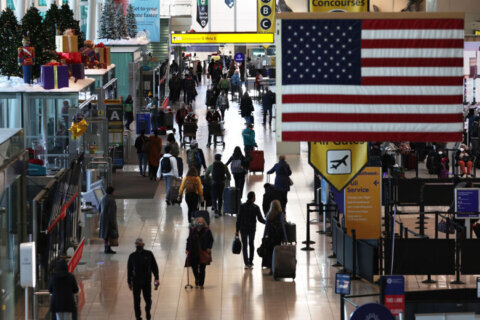Listen to WTOP online and on the radio at 103.5 FM or 107.7 FM for our team coverage.
As recovery efforts slow down and long-term investigations begin into how a large cargo ship crashed into a pillar of the Francis Scott Key Bridge in Baltimore on Tuesday, officials are evaluating how they can remove the cargo ship and debris from the downed section of the bridge.
Maryland State Police said they will continue to search for the remains of the construction workers who fell into the Patapsco River when the bridge collapsed after dangerous debris from the bridge has been cleared.
WTOP reporter Luke Lukert reported from Baltimore early Thursday morning that barges and cranes were headed to the river to begin lifting the wreckage out of the water
In addition to trying to clear the channel floor of the bridge debris, officials will need to assess the damage to the Dali and ensure it doesn’t leak fuel or sink. Investigators found damage to at least 13 containers on the ship.
The Dali will then likely be towed back to the port, and the cargo offloaded.
At a White House press briefing earlier Wednesday, Coast Guard Vice Adm. Pierre Gautier said the top priority is restoring the waterway for shipping and removing the container ship.
The party responsible for the Singapore-flagged ship, Resolve Marine Incorporated, has begun “mobilizing resources to take the next steps appropriate to refloat the vessel and remove it,” which Gautier said is required by the Coast Guard.
Gautier said that the Army Corps of Engineers is leading the efforts to assess and restore the waterway.
Maryland Sen. Chris Van Hollen said President Joe Biden has ordered the Army Corps of Engineers to “do everything necessary to clear the channel,” adding that the federal government will pick up the costs to do that.
“I saw preliminary estimates between $40 million and $50 million, but they’re very preliminary. But the bottom line is the Army Corps will pick up the cost,” Van Hollen said.
More Key Bridge collapse coverage:
- Previous accident, propulsion and mechanical issues reported in ship that hit Key Bridge
- Biden: Federal government should pay to rebuild Key Bridge after collapse
- Neighbors react to ‘great big noise’ of Key Bridge collapse
- How did container ship strike bring down Baltimore’s Key Bridge? An expert weighs in
- Economic impact of Baltimore bridge collapse: ‘Uncharted territory’
- GALLERY: Baltimore’s Francis Scott Key Bridge collapses after being struck by ship
Ship lost power before the crash
On Wednesday evening, officials with the National Transportation Safety Board spoke to the public, sharing that the large cargo ship that crashed into the Francis Scott Key Bridge in Baltimore on Tuesday morning had lost power before it crashed into one of the bridge’s pillars, causing it to crumble and fall apart within seconds.
NTSB officials boarded the ship to recover information from its electronics and paperwork and to interview the captain and other crew members, Chair Jennifer Homendy said during a news conference.
Twenty-three people, including two pilots, were on the ship when it crashed, she said, but no injuries were reported.
U.S. Coast Guard search and recovery officers were able to recover a voyage data recorder that tracked the ship’s movement from its departure at 12:39 a.m. until the collision around 1:30 a.m.
Marcel Muise, NTSB investigator in charge of the incident, explained how the ship’s pilot made mayday calls for several minutes — calling on nearby tugboats for help, dropping its anchor, and issuing steering commands and rudder orders — before the crash occurred. All lanes of traffic on the bridge were preemptively closed down by the Maryland Transportation Authority — likely saving more lives
“Around 1:29:33, the VDR audio recorder sounds consistent with the collision of the bridge,” Muise said at the press conference.
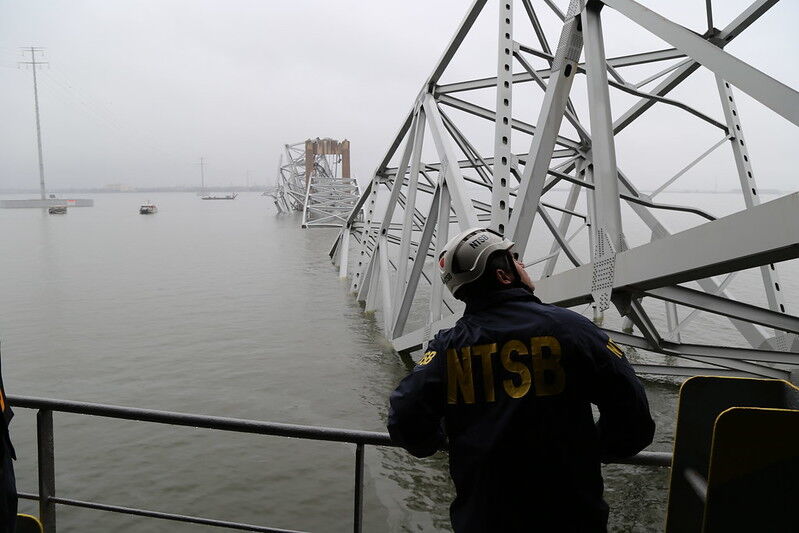
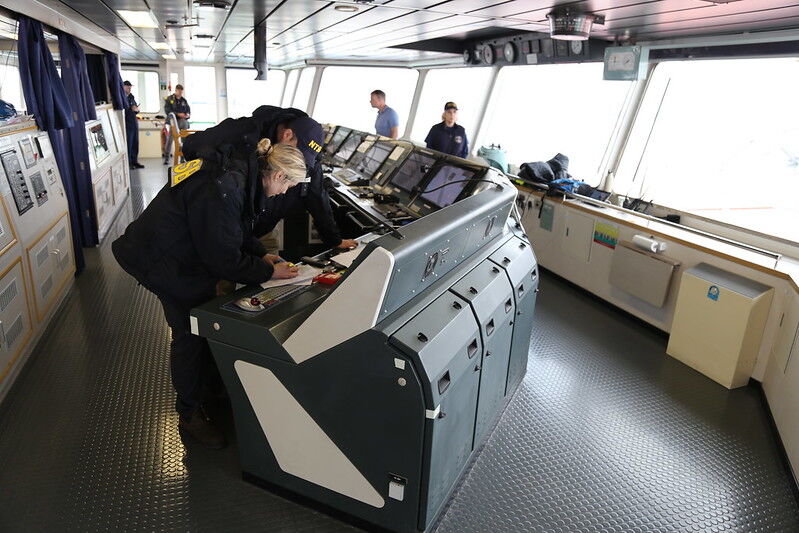
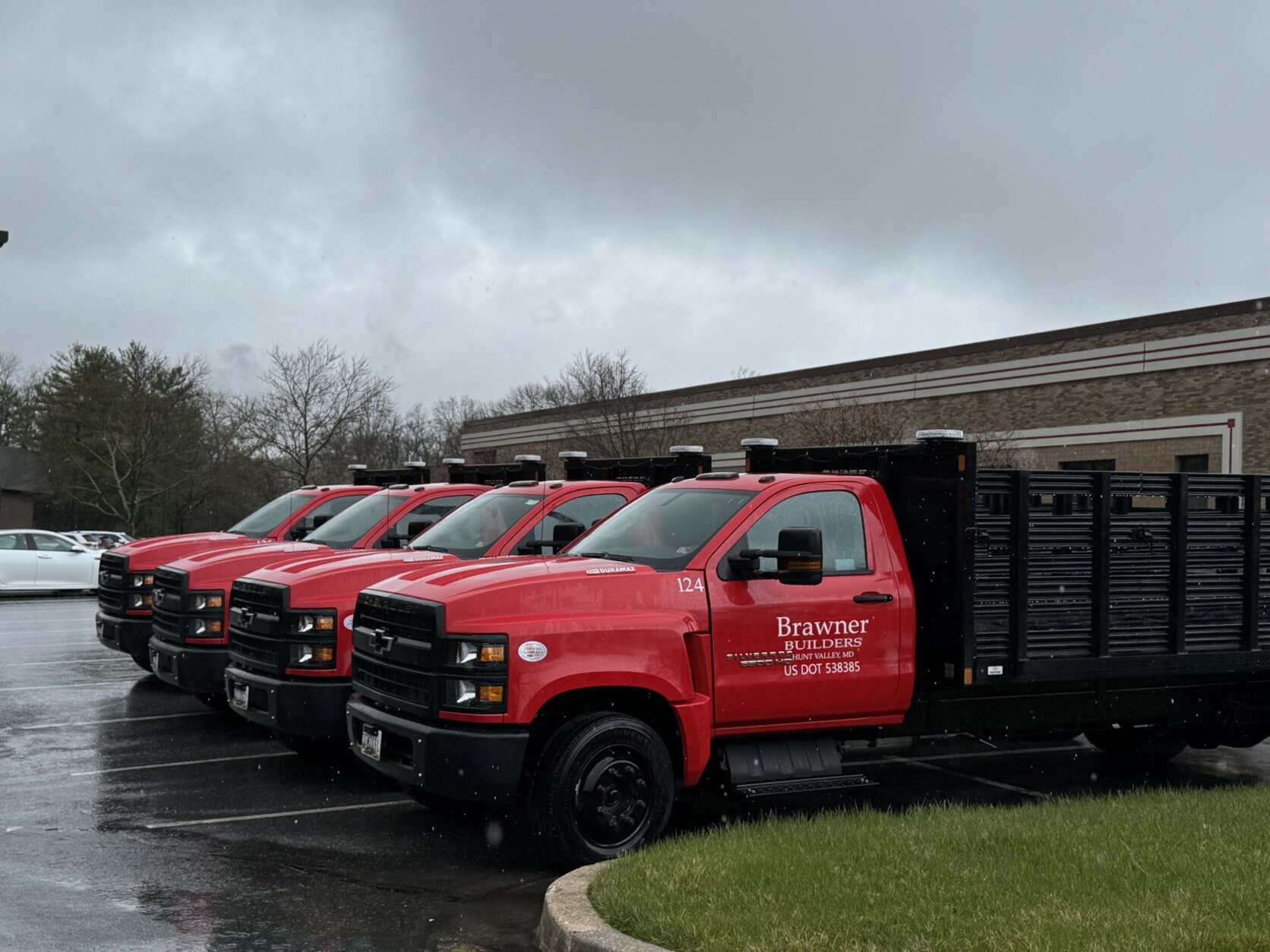
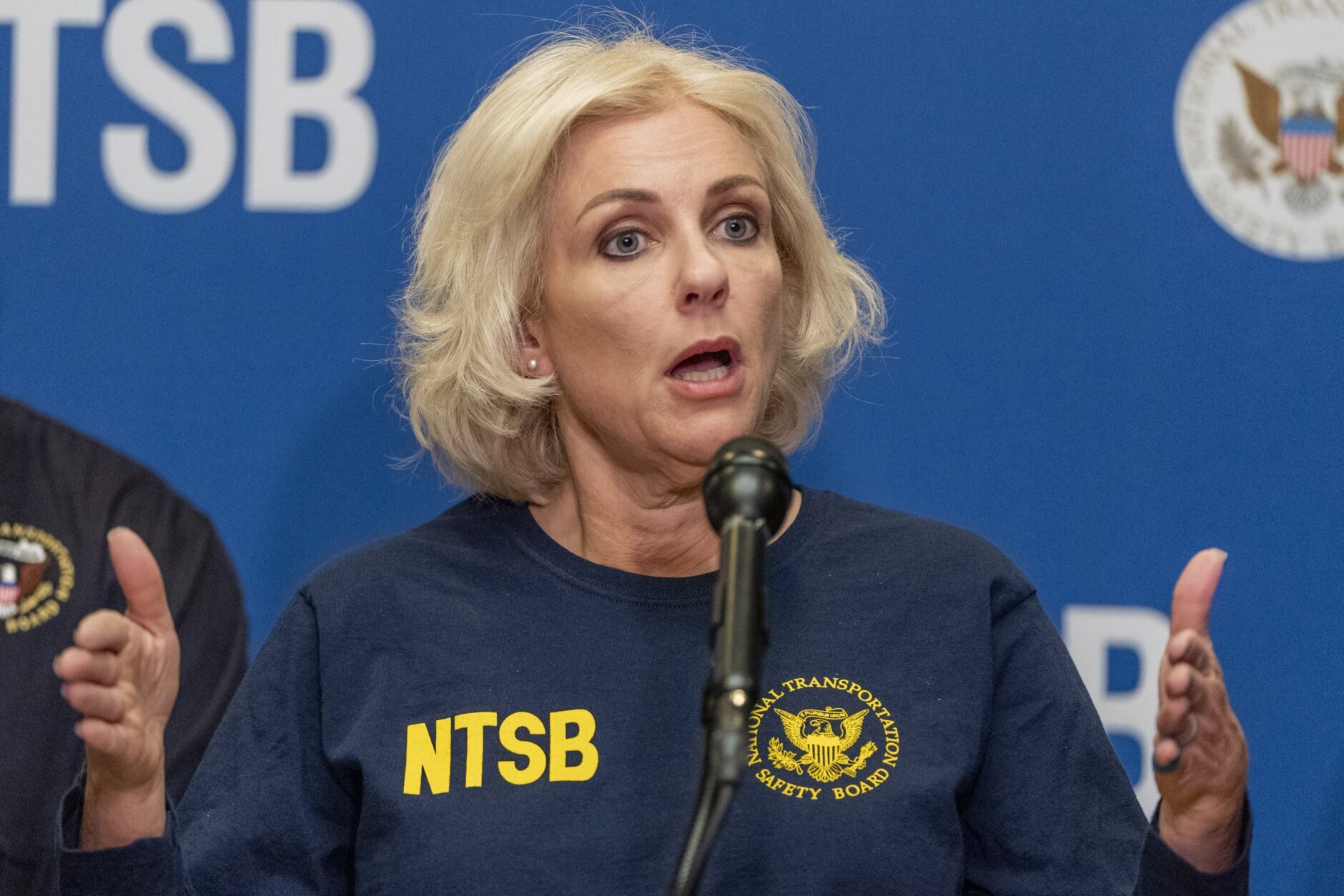
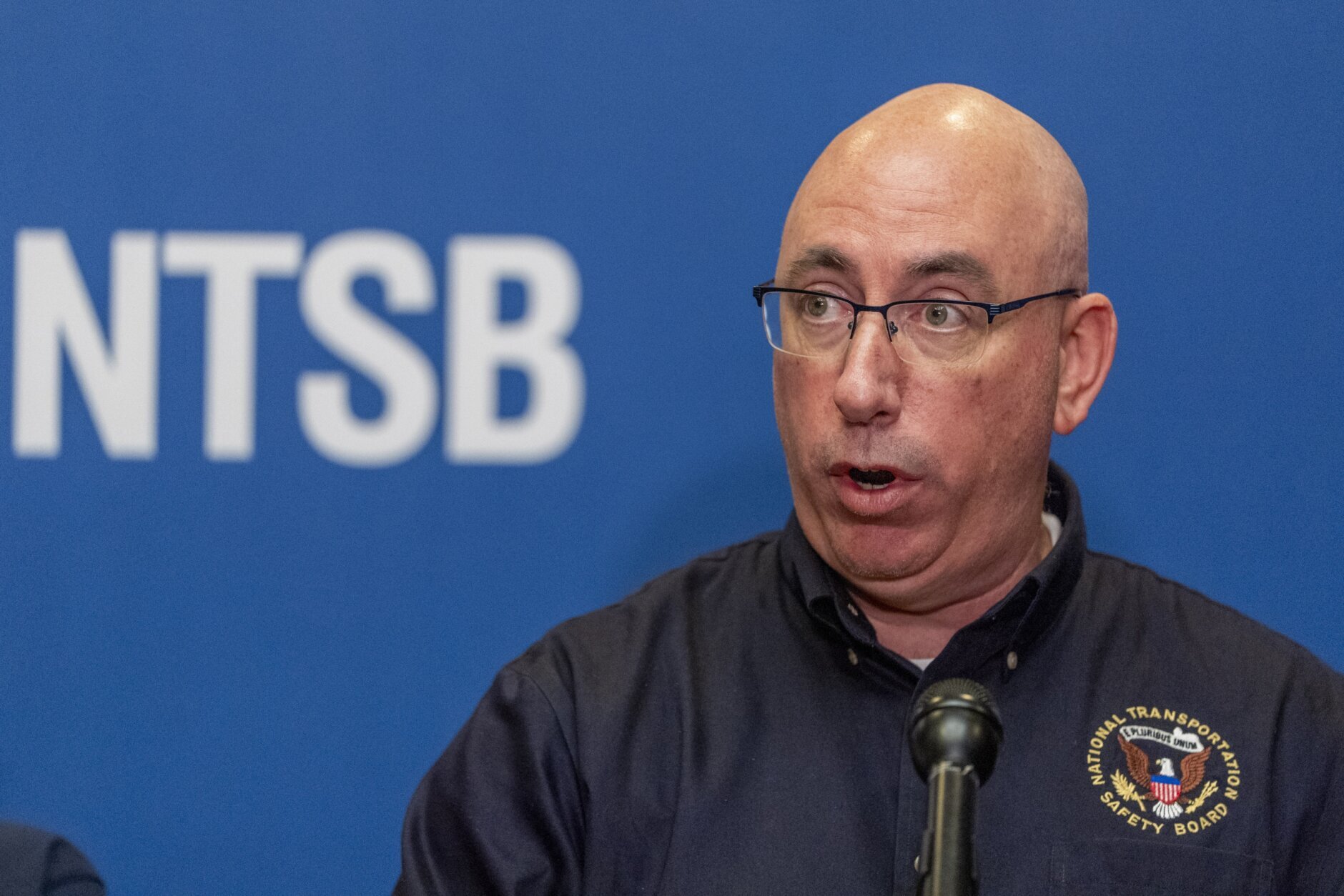
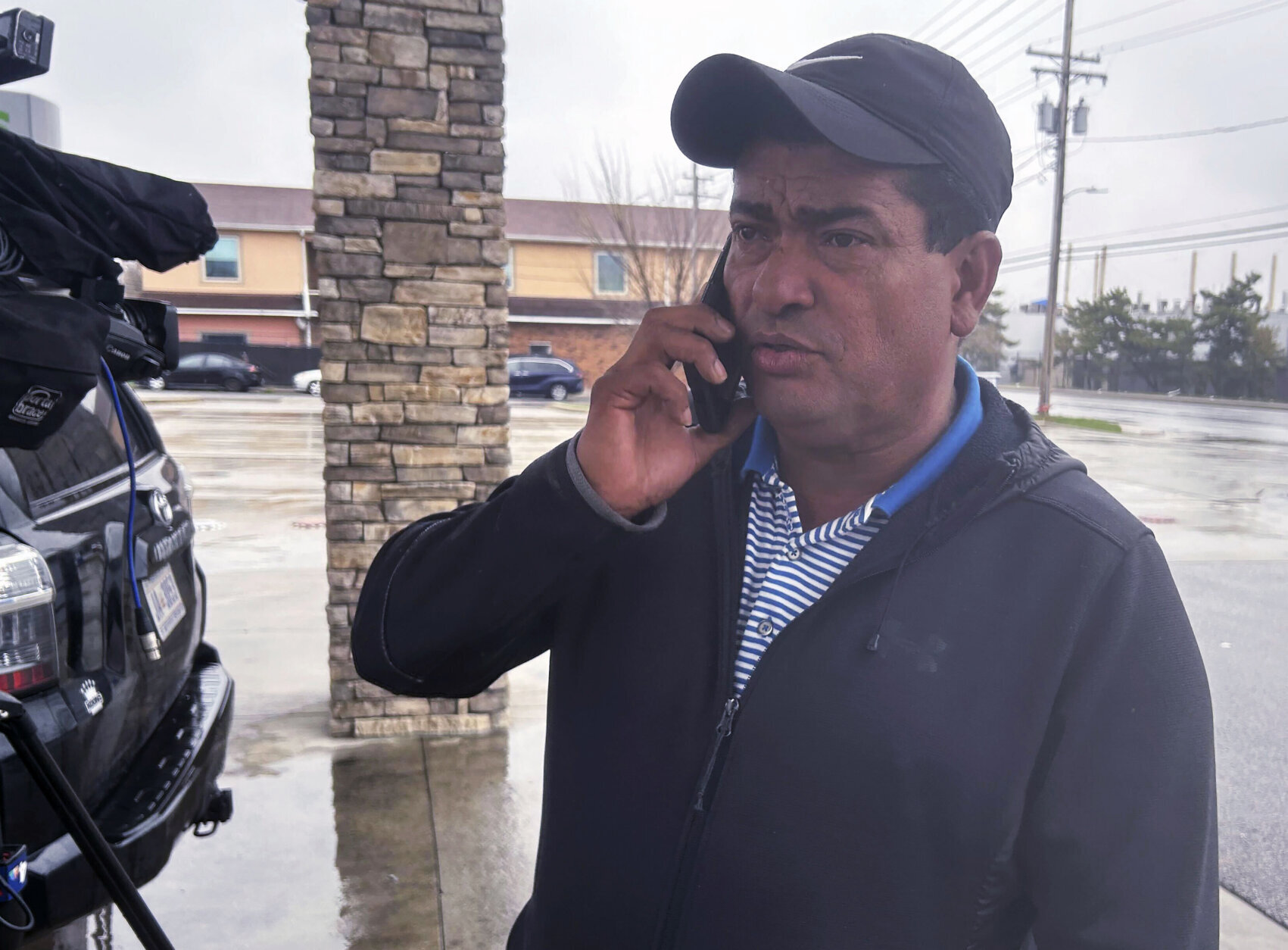
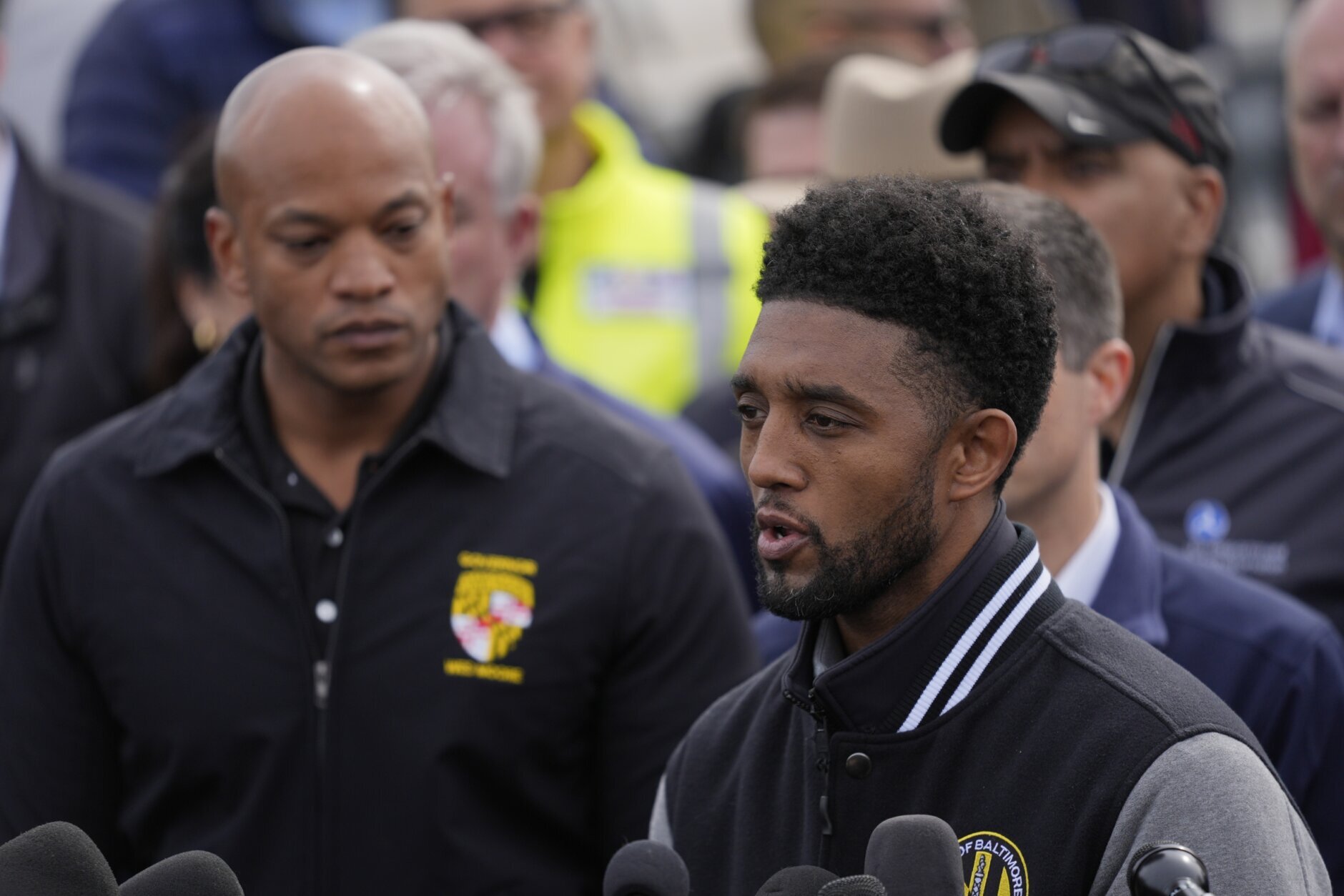
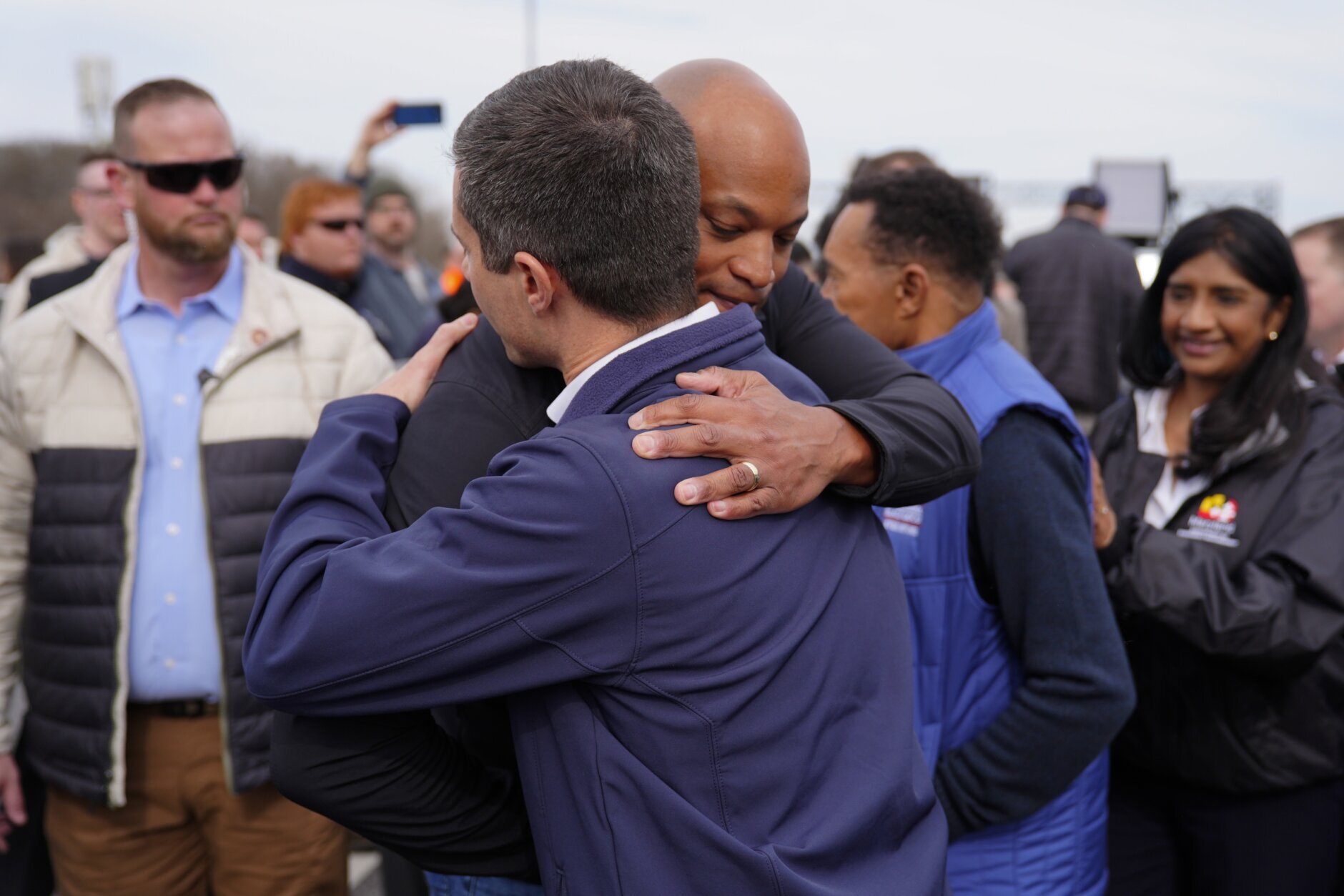
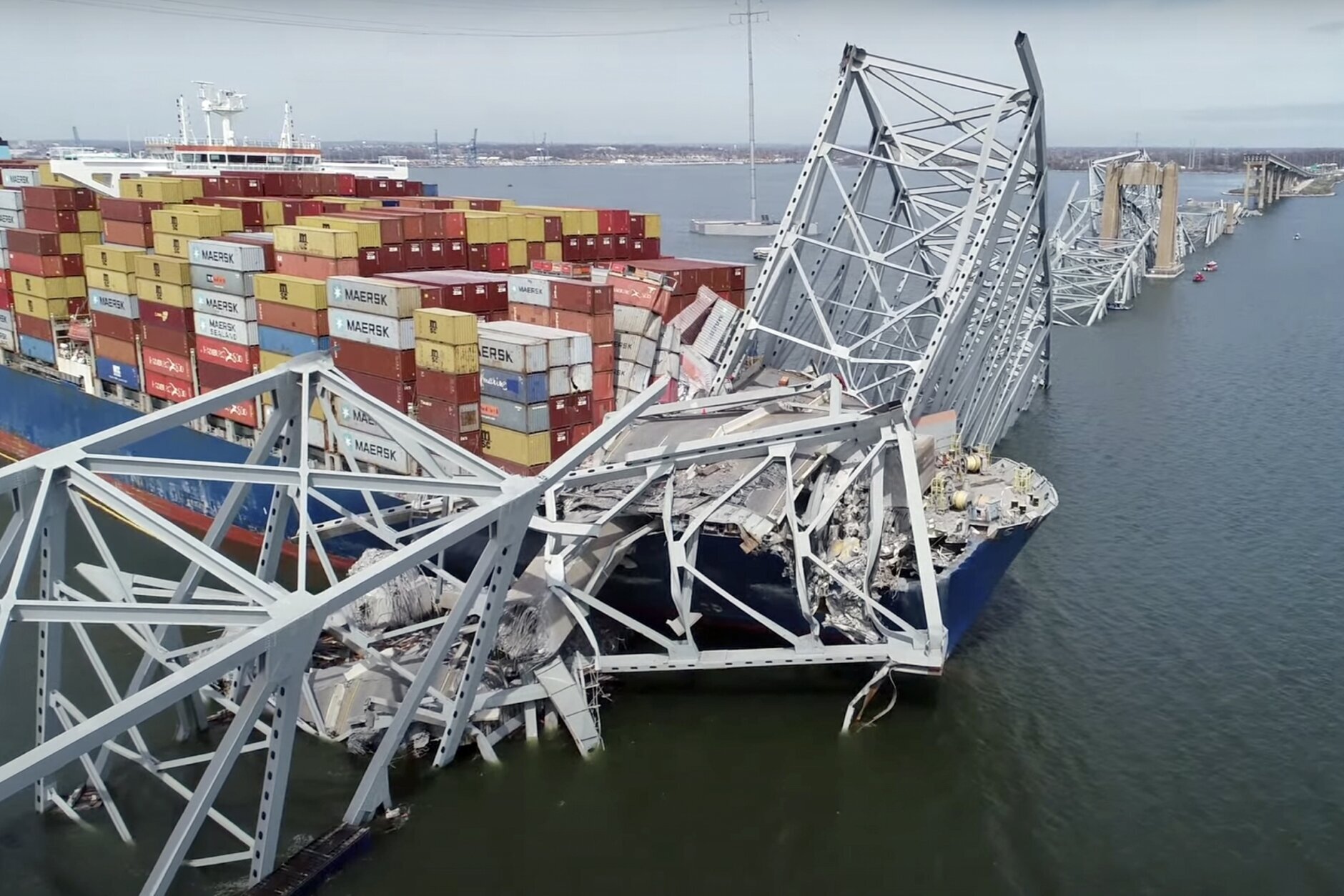
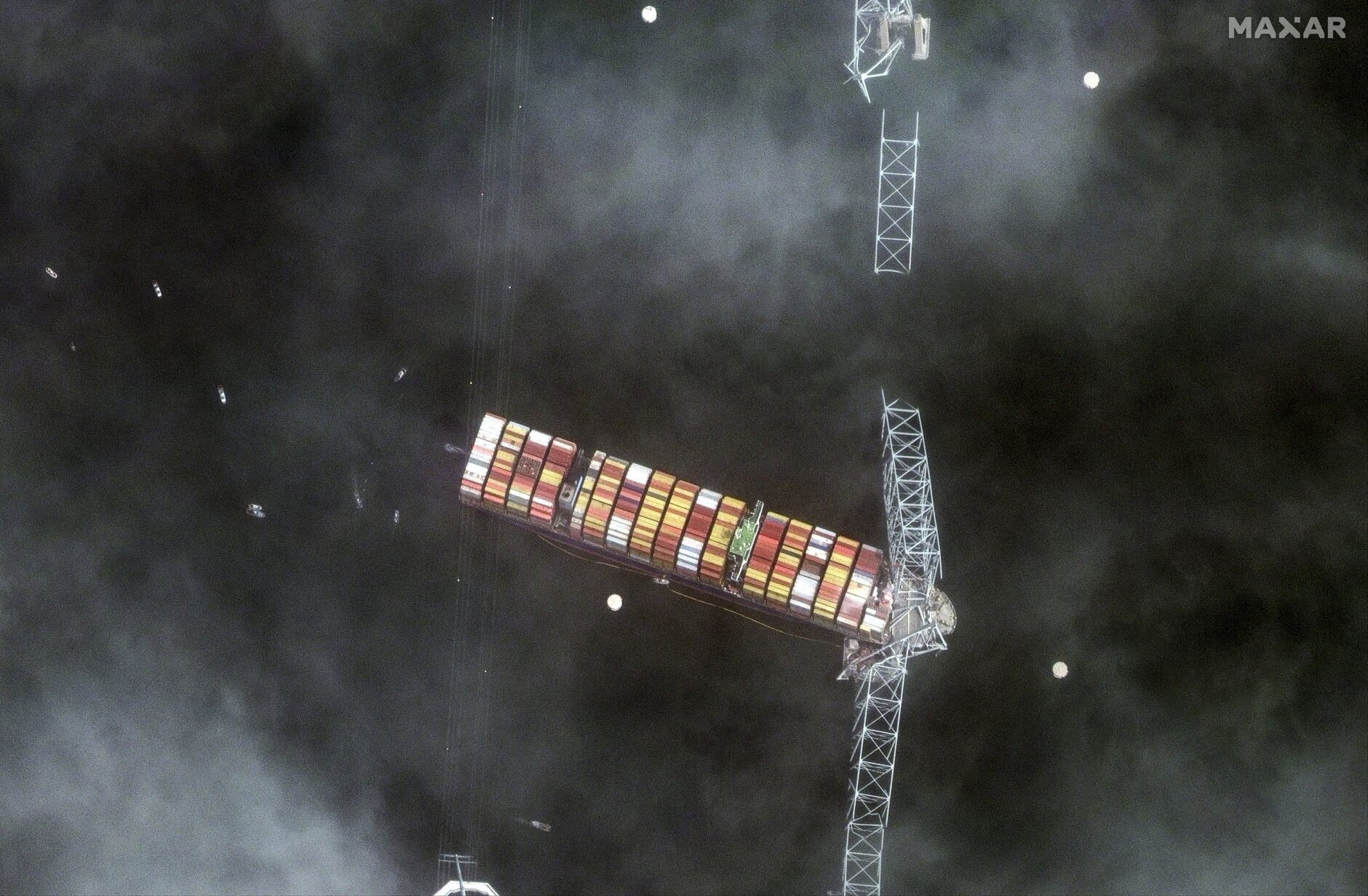
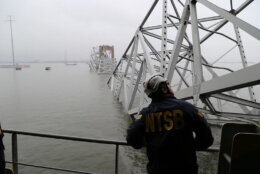
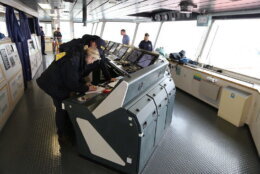
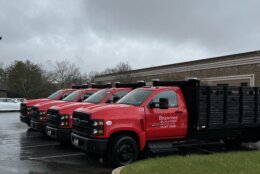
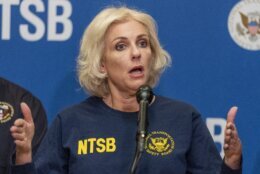
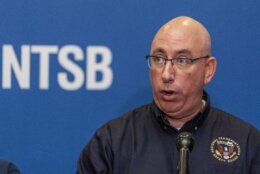
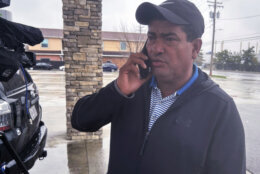
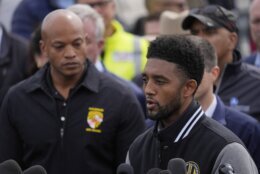
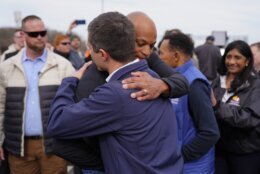
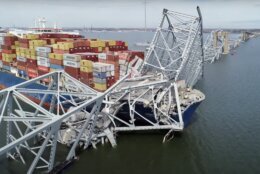

Finding the workers in the wreckage
At least eight people fell into the water after the collision; two were rescued after one ran from the bridge and the other swam to shore, but the other six — all workers part of a construction crew that was repairing potholes on the bridge — were missing for hours. Two of the men were recovered deceased, trapped inside a pickup truck on Wednesday evening.
Authorities identified the two workers recovered on Wednesday as Alejandro Fernandez Fuentes, 35, of Baltimore, and Dorlian Castillo Cabrera, 26, of Dundalk. Fuentes was originally from Mexico, while Cabrera was from Guatemala.
The other four have yet to be recovered.
Two of the other men who are assumed to be dead were identified by CASA, an immigrant rights group based in Maryland, as Miguel Luna, originally from El Salvador, and Maynor Yassir Suazo Sandoval, who immigrated from Honduras about 18 years ago.
Brawner Builders, the construction company the men worked for, released a statement after the workers were killed while doing bridge maintenance work.
“Highway workers are engaged in one of the most dangerous occupations in the United States and yet they go out every day on our highways to make things better for everyone,” the company said. “Safety has always been a prime consideration for our workers, and we have always taken every step necessary to provide safety for our workers in this dangerous occupation.”
Jack Murphy, the owner of the company, said he and other senior personnel had met with each family of the “very valued and loved employees who have perished in this tragedy.”
“Our company is in mourning over the loss of these fine people. But of course, our sense of loss cannot in any way compare to what their families are feeling,” the statement said.
“As to the one individual who was hospitalized, we pray for a full recovery. For those who have perished in this tragedy our prayers are with them and their families.”
Col. Roland Butler with Maryland State Police said the operation is moving from recovery mode to a “salvage operation.”
“Because of the superstructure surrounding what we believe are the vehicles and the amount of concrete and debris, divers are no longer able to safely navigate or operate around that. We have exhausted all search efforts.”
He clarified that once the wreckage is removed, divers would go back and “bring those people closure.”
Maryland Gov. Wes Moore said Wednesday evening when the two bodies were recovered that the efforts were not a conclusion but a continuation.
“I can’t stress enough the heroism of these folks,” Moore said earlier Wednesday of the rescuers. “They are in frigid conditions, they are down there in darkness where they can literally see about a foot in front of them. They are trying to navigate mangled metal. And they’re also in a place that it is now presumed that people have lost their lives.”
Economic impact after major shipping hub shuts down
Baltimore’s Key Bridge was built in 1977 and named for the writer of “The Star-Spangled Banner.” It spans the Patapsco River, a vital artery that, along with the Port of Baltimore, is a hub for shipping on the East Coast.
Ship traffic entering and leaving the Port of Baltimore is suspended until further notice. During a briefing at the bridge collapse scene, Maryland Rep. David Trone said state and federal officials estimated the port’s closure would cost the economy at least $15 million per day.
The crash will disrupt the country’s shipping industry and undoubtedly create headaches for commuters who rely on the bridge.
Biden said the federal government should pay for rebuilding the bridge, and Gov. Moore said he’s discussing his legislative options to speed up the recovery with Maryland’s General Assembly and the Biden administration.
“We know that this is going to have to be all hands on deck when we’re talking about the long-term recovery and for what it’s going to mean, not just for elements of the Key Bridge, but all the other elements that this has impacted,” Moore said.
Trone, who is a member of the House Appropriations Committee, echoed that it will be a team effort to rebuild.
“Right now, at the federal level, we’re actively exploring the use of ‘quick release’ emergency relief funds in partnership with Secretary Buttigieg and the urgent deployment of Congressionally approved funding,” Trone wrote in a statement Wednesday.
Transportation Secretary Pete Buttigieg says it’s too early to say how long it will take to reopen the Port of Baltimore or replace the destroyed bridge. He noted it initially took five years to build the bridge.
Buttigieg also plans to meet Thursday with supply chain officials.
Moore said he’s “overwhelmed” by the amount of support from fellow governors, philanthropists and others looking to help.
“Maryland, we really appreciate the love that’s been coming from around the country and the support,” Moore said. “I tell them, the people who need it most are these families.”
WTOP’s Nick Iannelli, Jessica Kronzer, Thomas Robertson and Abigail Constantino and The Associated Press contributed to this report.
Get breaking news and daily headlines delivered to your email inbox by signing up here.
© 2024 WTOP. All Rights Reserved. This website is not intended for users located within the European Economic Area.




